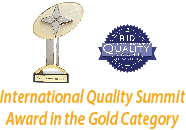
DOCUMENTS | Medicine Documents
Is It Heartburn or a Heart Attack?
What Does Heartburn Feel Like?
Heartburn is caused by acid reflux when stomach acid splashes from the stomach up into the esophagus. Heartburn triggers differ from person to person, but most people have similar heartburn symptoms.
A burning feeling in the chest just behind the breastbone that occurs after eating and lasts a few minutes to several hours.
• Chest pain, especially after bending over, lying down, or eating. Remember, you should see your doctor right away for any unexplained chest pain. Don't assume it's heartburn until your doctor tells you it is.
• Burning in the throat -- or hot, sour, acidic or salty-tasting fluid at the back of the throat.
• Difficulty swallowing.
• Feeling of food "sticking" in the middle of the chest or throat.
• Heartburn may cause chronic cough, sore throat, or chronic hoarseness.
Reporting these symptoms is usually all that is needed for your doctor to make the diagnosis of heartburn. However, your doctor may perform special tests to determine the severity of your problem or to monitor your treatment. Special tests may also be needed if you have severe acid reflux or unusual symptoms such as weight loss.
Is It Heartburn or a Heart Attack?
Chest pain is one of the most common reasons a person goes to the emergency room. While many of these people are suffering from a heart attack, some actually may have severe heartburn.
Often, the pain caused by a heart attack and during a severe heartburn episode is so difficult to distinguish that sophisticated medical testing is needed to determine whether or not you are having a heart attack. To complicate matters even more, the two problems have many of the same symptoms and occur in similar types of people (For example, older age and overweight people).
Signs more typical of heartburn include:
• A sharp, burning sensation just below the breastbone or ribs.
• Pain generally does not radiate to the shoulders, neck, or arms, but it can.
• Pain usually comes after meals, when lying on the back, when exercising or when experiencing anxiety.
• Symptoms usually respond quickly to antacids.
• Rarely accompanied by a cold sweat.
Signs more typical of angina (severe chest pain from heart problems) or heart attack include:
• A feeling of fullness, tightness, or dull pressure or pain generally in the center of the chest.
• The feeling of a belt being tightened around your chest
• Sudden chest pain or pressure that worsens
• Dizziness
• Pain may spread to the shoulders, neck, jaw or arms
• Pain often responds quickly to nitroglycerin
• Shortness of breath
• Often accompanied by a cold sweat
• Possible lightheadedness
If you have any pain that lasts for more than a few minutes or any warning signs of a heart attack, seek immediate medical attention. If there's any confusion about whether your symptoms are heartburn or a heart attack, also seek immediate medical attention.
http://www.webmd.com/heartburn-gerd/diagnose


